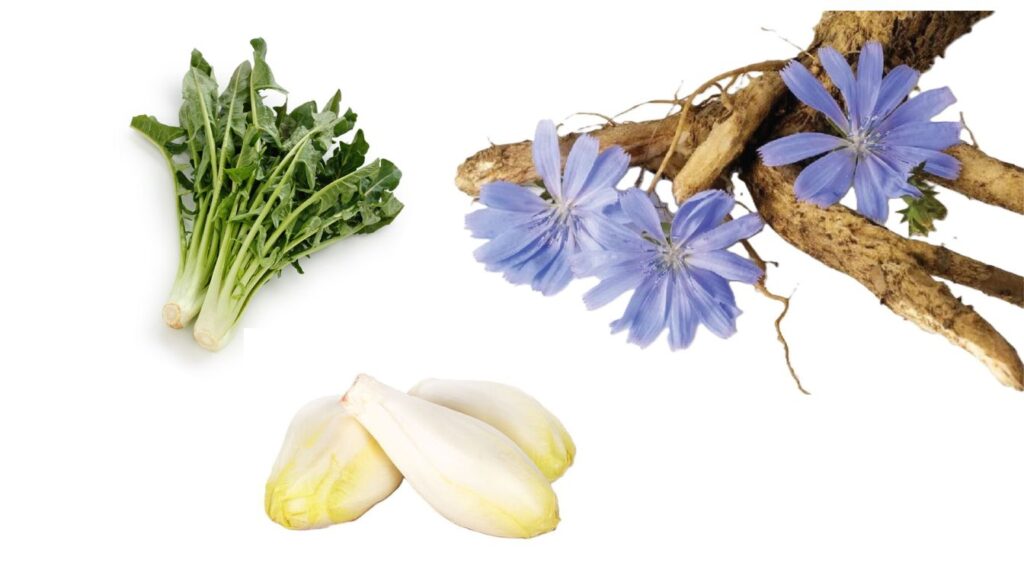If you’d like to add something unique to your garden while also supporting your health, chicory is a great choice. Often overlooked, this plant is both easy to grow and rich in valuable nutrients. Picture harvesting its vibrant leaves and roots straight from your backyard, using them to enhance your meals while giving your body a natural boost.
Chicory is more than just a pretty plant; it’s a nutritional powerhouse. Rich in fiber and antioxidants, it supports digestion and promotes overall wellness. Whether you enjoy it in salads or as a coffee substitute, chicory offers a unique flavor that can transform your culinary creations. Join me as I dive into the joys of growing chicory and discover how this versatile plant can elevate your health and garden game.
Overview Of Chicory
Chicory, a resilient plant, thrives in many environments. It features bright blue flowers and sturdy green leaves, making it an attractive addition to any garden. I enjoy watching it bloom in late summer. The plant can grow up to 4 feet tall, which allows it to stand out among other garden favorites.
In terms of nutrition, chicory packs a punch. It’s rich in inulin, a type of fiber that supports gut health. Many people appreciate its digestive benefits. Antioxidants are also present, helping combat free radicals. These health benefits make chicory a great choice for enhancing my diet.
Culinary uses vary. I sometimes toss fresh leaves into salads for a crisp, slightly bitter flavor. Roasting chicory root creates a delightful coffee alternative. This versatile plant brings new tastes and textures to the table. Plus, who wouldn’t love a coffee substitute that won’t keep you up all night?
Growing chicory is straightforward. It prefers well-drained soil and full sunlight. I’ve found that it requires minimal attention compared to other crops. With proper care, chicory can flourish and offer a bounty of delicious, healthful greens.
Overall, incorporating chicory into my garden and diet has proven rewarding. From its visual appeal to its numerous health advantages, this plant holds a special place in my heart and on my plate.
Growing Chicory

Growing chicory is straightforward. This plant thrives in various gardens and offers both beauty and health benefits. Its striking blue flowers and sturdy leaves add a visual pop, while its nutritional value enhances meals.
Ideal Growing Conditions – Growing Chicory: Enhance Your Garden for Health Benefits
Chicory grows best in well-drained soil. A sunny spot makes it happy. I recommend picking a location with at least six hours of full sunlight each day. It tolerates different soil types but prefers a pH between 6.0 and 7.0. Ensure you hydrate it well, but avoid overwatering, as soggy soil can hinder growth.
Health Benefits Of Chicory
Chicory offers numerous health benefits that make it a worthy addition to my diet. This plant shines in its nutritional profile and contributes to overall well-being.
Nutritional Profile – Growing Chicory: Enhance Your Garden for Health Benefits
Chicory is packed with essential nutrients. One cup of raw chicory provides about 20 calories, 4 grams of carbohydrates, and 2 grams of fiber. It contains vitamins A, C, and K, along with important minerals like calcium and potassium. Chicory’s fiber content supports heart health and helps maintain healthy cholesterol levels. The antioxidants found in chicory, such as flavonoids, help protect my cells from damage. Consuming chicory can enhance my nutrient intake without adding extra calories.
Benefits For Digestion
Chicory is a digestive superstar. It contains inulin, a type of soluble fiber that acts as a prebiotic. This means it feeds the good bacteria in my gut, promoting healthy digestion. When I eat chicory, I often feel less bloated and more comfortable. The increased fiber intake helps regulate bowel movements. Additionally, chicory can alleviate constipation, making digestion smoother. If I’m looking for a natural way to boost gut health, chicory is an excellent choice.
Anti-Inflammatory Properties
Chicory also boasts impressive anti-inflammatory properties. The antioxidants in chicory help reduce inflammation in my body. When I include it in my meals, I often notice less discomfort in my joints after a workout. Chicory extract has been shown to lower inflammatory markers, which supports overall health. Adding chicory to my diet not only tastes great but also helps me feel better in my daily life.
Culinary Uses Of Chicory
Chicory adds a punch to many dishes. I often toss fresh chicory leaves into salads. The crisp texture and slightly bitter flavor complement sweeter ingredients like apples or pears.
Chicory roots create a rich, earthy taste when roasted. I grind the roasted roots to make a coffee substitute. It offers a unique flavor that surprises coffee lovers, and it’s caffeine-free.
For stir-fries or sautés, I chop chicory leaves and add them near the end of cooking. They retain their crunch and enhance the overall flavor profile.
Baking or grilling chicory can bring out its natural sweetness. I drizzle olive oil and add a sprinkle of salt before grilling. This method brings a caramelized touch that pairs well with meats or grains.
Chicory also shines in herbal teas. I steep dried chicory roots to create a soothing drink. It’s perfect for a calming evening routine.
Don’t overlook chicory in desserts, either. I use chicory coffee in recipes like tiramisu, giving it a twist that intrigues guests.
Before You Go – Growing Chicory: Enhance Your Garden for Health Benefits

Growing chicory has truly transformed my gardening and culinary experiences. Its vibrant flowers and nutritious leaves not only beautify my garden but also provide a wealth of health benefits. I’ve enjoyed incorporating chicory into various dishes and have noticed the positive impact on my digestion and overall well-being.
Whether you’re looking to enhance your garden or add a unique twist to your meals, chicory is a fantastic choice. Its resilience and minimal care requirements make it a rewarding addition for any gardener. I encourage you to give chicory a try and discover the joy of nurturing this versatile plant while reaping its numerous health benefits.
Don’t forget to add theherbprof.com homepage to your favourites so you don’t miss out on future articles.
References – Growing Chicory: Enhance Your Garden for Health Benefits
Little Herb Encyclopedia, by Jack Ritchason; N.D., Woodland Publishing Incorporated, 1995
The Ultimate Healing System, Course Manual, Copyright 1985, Don Lepore
Planetary Herbology, Michael Tierra, C.A., N.D., Lotus Press, 1988
Handbook of Medicinal Herbs, by James A. Duke, Pub. CRP Second Edition 2007
The Complete Medicinal Herbal, by Penelope Ody, Published by Dorling Kindersley
Check the Following Article
Raised Bed Strawberries: Grow Healthy, Delicious Crops
Perfect Compost Ratio for Nutrient-Rich Garden Soil
Hominy Health Benefits: A Tasty Boost for Your Well-Being
Cosmos Plant: Care Tips for Vibrant Blooms All Season
Frequently Asked Questions – Growing Chicory: Enhance Your Garden for Health Benefits
What are the health benefits of chicory?
Chicory is rich in fiber, vitamins A, C, and K, and essential minerals. It supports heart health, aids digestion due to its prebiotic inulin content, and has anti-inflammatory properties that can help relieve discomfort.
How should chicory be grown?
Chicory thrives in well-drained soil and full sunlight, ideally requiring at least six hours of sun each day. It tolerates various soil types with a pH between 6.0 and 7.0 and needs moderate watering, avoiding soggy conditions.
What culinary uses does chicory have?
Chicory leaves add a crisp and slightly bitter flavor to salads, while roasted roots serve as a caffeine-free coffee alternative. It can also be used in stir-fries, baked dishes, herbal teas, and even desserts like tiramisu.
Is chicory easy to grow in a garden?
Yes, chicory is an easy-to-grow plant that requires minimal attention. Its resilience and adaptability make it a rewarding option for both novice and experienced gardeners.
Can chicory improve digestion?
Yes, chicory contains prebiotic inulin, which promotes healthy digestion by supporting beneficial gut bacteria, making it a great addition to a diet focused on gut health.
